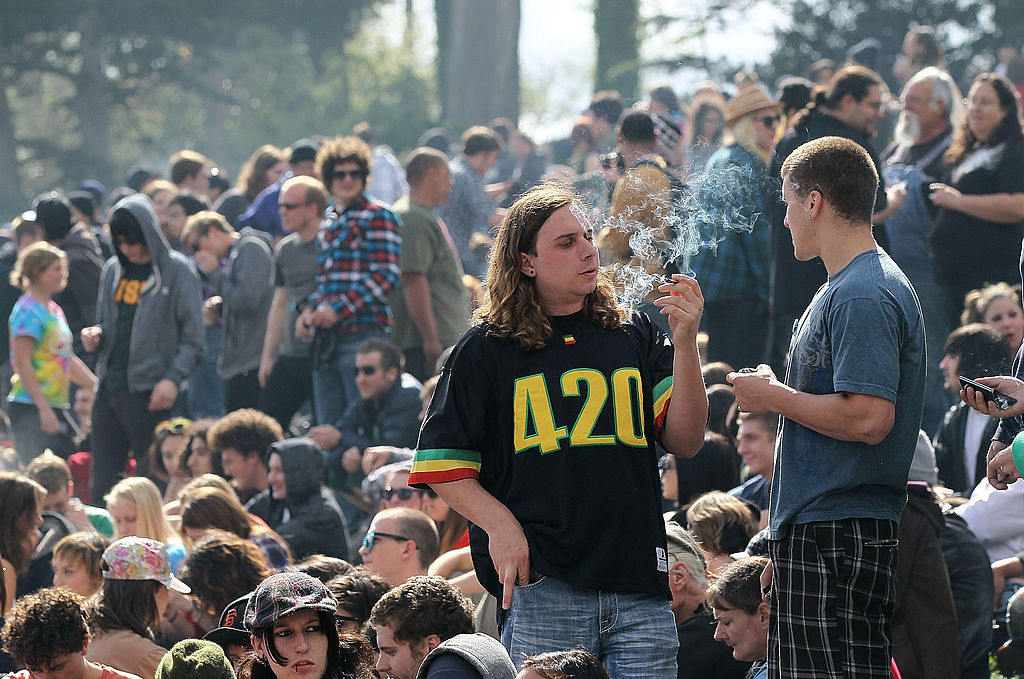The shootings of four Oakland police officers on a single day was remarkable not just for its death toll, but for the years of law enforcement experience Mark Dunakin, John Hege, Ervin Romans and Daniel Sakai had racked up between them.
Sakai, at 35 the youngest of the three officers killed Saturday by a 26-year-old parolee with two guns, had been working to protect people since his days as a college undergraduate, friends said. Like the 40-year-old Dunakin, a 17-year veteran who used to investigate homicides, he had chosen to marry a fellow officer.
Romans, 43, put in time as a Marine and an officer with Oakland's public housing authority before he pinned a city police badge to his chest. Hege, 41, who was declared brain dead Sunday but remained on life support, worked as a physical education teacher and a volunteer reserve officer before he fulfilled a dream and joined the force a decade ago.
"We lose officers about every 57 hours in this country" said Chuck Canterbury, president of the national Fraternal Order of Police. "But seldom do you have one of this magnitude."
Police said all four officers were shot by Lovelle Mixon, 26, of Oakland, a parolee who fled after shooting the first two officers after a traffic stop, then shot two more after a SWAT team entered an apartment in which he was hiding. Mixon was also killed by officers, police said.
"All were very hard-working officers," acting police Chief Howard Jordan told KTVU-TV Monday morning. "I knew each of them personally.
"You can have as many officers as you can on the scene," he added, "but police work is inherently dangerous."
He said fellow officers were "trying to recover. We have a lot of young officers in our department, probably about 350 who have never been through a single line of duty death," he said.
Gov. Arnold Schwarzenegger ordered flags at the state capitol flown at half-staff Sunday. Schwarzenegger returned from Washington to meet briefly with Oakland Mayor Ron Dellums and members of the police department Sunday afternoon.
Local
Relatives and co-workers of the four officers requested privacy as they absorbed the enormity of the deaths. Oakland had never lost even two officers on the same day, never mind having twice that many mortally wounded.
Yet some details about their lives and motivations for joining law enforcement emerged.
Sgt. Mark Dunakin's mother-in-law, Maxine Schwab, of Stockton, said he is survived by his wife of 16 years and their three children, two boys ages 15 and 8, and a 13-year-old daughter. They lived in Tracy.
Schwab's daughter, Angela, met Dunakin in a criminal justice class at Chabot College. She retired in 1998 as an Alameda County sheriff's deputy after she was taken hostage while responding to a restaurant robbery. Another deputy was killed in that incident, Schwab said.
"She understands police work, so she knew the dangers," Schwab said of her daughter. "There is no question she knew. This is her second time around. She is very facing reality, face on."
Dunakin, who was born in Ohio and raised in Pleasanton, loved police work and spent several years working in Oakland's homicide division before he joined the traffic division, Schwab said. His parents and younger brother arrived in the Bay Area within hours of the shootings, she said.
"He was smart, and he was so good with people, very warm and affectionate," Schwab said of her son-in-law. "If you met him, you'd be charmed by him."
Friends who knew Sgt. Daniel Sakai from his days at the University of California, Berkeley and his continued involvement in his college fraternity said he was married to a campus police officer and was the father of a young daughter. He and his family lived in Castro Valley.
Oren Levy, a fraternity brother of Sakai, said his friend grew up in Big Bear and was an accomplished mountain biker
and outdoorsman who majored in forestry and graduated in 1995.
As an undergraduate at Berkeley, Sakai worked for the campus police department as a student volunteer. After graduation, Sakai spent a year in Japan teaching English.
"His honor was extremely important to him. Whenever there was a situation where someone could take the path that was less honorable, he always advocated doing the right thing," Levy said. "Being a police officer was really perfect for him."
Reached by telephone, Hege's father, Dr. John S. Hege, said his son was attached to a ventilator and "looks fine" except for a black eye behind which the bullet was lodged. He said the officer had been declared brain dead but remained on life support so an organ donation could be arranged.
"He does not have vital brain function to sustain life and will not regain that," Hege said.
On Monday, Hege said his son would remain on life support until at least the evening for organ harvesting, then the hospital would determine when he could be taken off.
Hege said his wife, two daughters and friends of his son spent time with him last night at the hospital, and said there's been an outpouring of support from the community.
"We're doing OK," he said.
Hege said his son, who lived in Concord, loved being a policeman. He worked well with people and was an Eagle Scout. He played high school football and wrestled, umpired and coached.
After graduating from St. Mary's College in Moraga, he taught high school physical education for a few years in nearby Hayward before joining the police department a decade ago.
He recently became a motorcycle traffic patrol officer, Hege said, adding, "He liked excitement."
Schwarzenegger's office released a statement late Sunday night saying that like Dunakin, Sgt. Romans, who lived in Danville, left behind a wife and three children.



